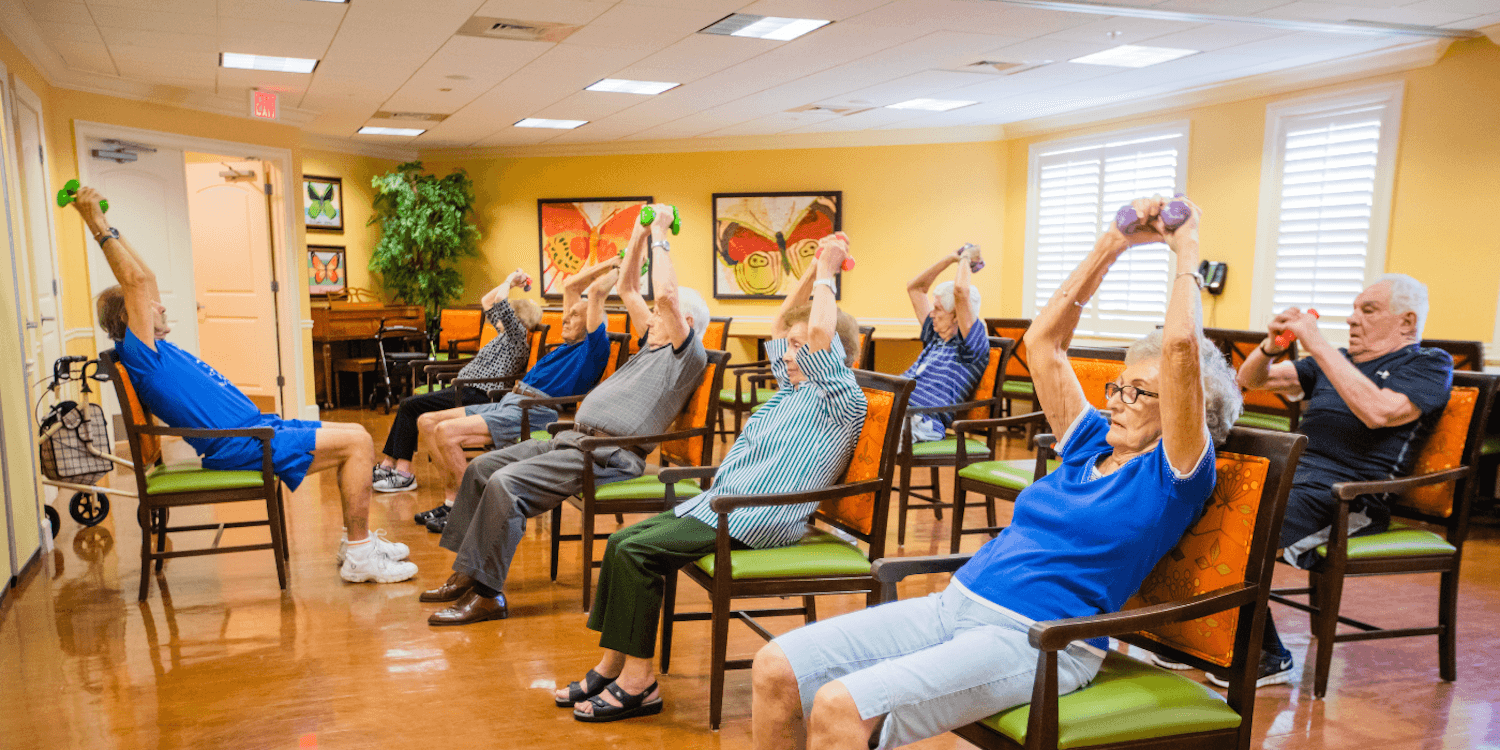Why Families Choose Reliable and Expert Alzheimers Care Charlotte Facilities
Why Families Choose Reliable and Expert Alzheimers Care Charlotte Facilities
Blog Article
Developing a Safe and Supportive Setting for Alzheimer's Care
The development of a risk-free and helpful atmosphere for people with Alzheimer's is paramount in boosting their top quality of life. This involves not only physical adaptations within the home, such as decreasing dangers and including familiar aspects, however additionally the implementation of organized regimens and significant activities that accommodate their cognitive demands. Recognizing the psychological and emotional measurements of treatment can significantly impact their feeling of protection and link. Discovering these diverse strategies can disclose important understandings into effective caregiving methods that might change the everyday experiences of both caretakers and patients.
Recognizing Alzheimer's Demands
Regularly, individuals with Alzheimer's disease show a range of needs that call for tailored methods to care. As the condition advances, cognitive decrease materializes in numerous means, affecting memory, thinking, and also the capacity to do everyday activities. Caretakers need to identify these progressing requirements to give appropriate assistance and make certain a better of life for those influenced.
One essential facet of comprehending Alzheimer's needs is acknowledging the importance of routine and familiarity. People often locate comfort in established patterns, which can decrease anxiousness and confusion. Caretakers should strive to create organized everyday schedules that include purposeful tasks lined up with the individual's passions and abilities.
In addition, reliable interaction is extremely important. People with Alzheimer's might struggle to reveal themselves or comprehend complicated language. Caretakers must utilize basic, clear language, use non-verbal signs, and technique energetic paying attention to promote understanding and connection.
Last but not least, psychological and social demands can not be overlooked. Offering possibilities for social interaction and maintaining connections can substantially enhance emotional health. Caretakers must encourage interaction in neighborhood activities or family members events, promoting a sense of belonging and purpose. Understanding these varied demands is important for producing a supportive treatment setting.
Creating a Safe Home
Creating a secure home for individuals with Alzheimer's condition is important to advertising and decreasing risks freedom. The layout of the home should focus on security while enabling personal convenience. Remove prospective risks such as loosened carpets, sharp things, and clutter, which can lead to falls or mishaps. Guarantee that pathways are well-lit and clear, as proper illumination decreases disorientation and improves mobility.
Incorporating adaptive functions is likewise vital. Set up grab bars in washrooms and near stairs, and think about making use of non-slip mats in damp areas. Furthermore, making use of contrasting colors for floors and wall surfaces can aid in distinguishing areas, assisting to minimize complication.
Familiarity is very important for individuals with Alzheimer's. Personalizing the setting with familiar objects and photos can reinforce a sense of belonging and security - Alzheimers Care Charlotte. It is additionally beneficial to have an assigned area for day-to-day activities, such as analysis or crafting, which can provide framework to their day
Last but not least, executing a safe and secure exterior area enables for risk-free exploration while getting in touch with nature. By thoughtfully designing the home environment, caregivers can dramatically enhance the lifestyle for people dealing with Alzheimer's disease.
Enhancing Communication Abilities

Non-verbal interaction, consisting of faces, motions, and touch, plays an essential function in sharing compassion and understanding. Preserving eye get in touch with and a calm attitude can enhance the convenience level of the individual, promoting a feeling of safety and security.
In addition, it is essential to practice active listening. This involves being completely present, showing perseverance, and permitting the individual to reveal themselves without disruption. Rep might be needed; caretakers ought to be prepared to review subjects or concerns, as individuals with Alzheimer's might have problem with memory recall.
Additionally, using aesthetic aids or signs, such as pictures or familiar things, can help with recognition and interaction. Eventually, enhancing communication abilities is concerning constructing depend on and producing an environment where individuals feel heard, valued, and understood, thus enhancing their lifestyle.
Encouraging Social Interaction
Promoting significant social communications can greatly enhance the well-being of people with Alzheimer's illness. Involving with others not only aids fight feelings of seclusion however additionally promotes cognitive function and psychological health. More about the author Structured social activities, such as team crafts, arts and video games, or music treatment, produce opportunities for residents to get in touch with peers and caretakers, which can cause improved state of mind and reduced anxiousness.
Creating a welcoming environment that motivates socializing is essential. This can be accomplished by organizing communal areas that help with interaction, such as comfy seating locations or task areas. Furthermore, incorporating acquainted and culturally appropriate activities can stimulate memories and encourage involvement, enabling individuals with Alzheimer's to really feel even more linked to their past experiences.
Additionally, caretakers should be educated to acknowledge and promote social interaction amongst homeowners. By prioritizing social communication, we can substantially enrich the lives of those living with Alzheimer's, promoting a feeling of area and belonging.
Supporting Caregiver Wellness

To support caretakers, organizations should offer routine training and instructional sources to boost their understanding of Alzheimer's condition and caregiving methods. Providing access to respite care solutions allows caregivers to take required breaks, lowering stress and anxiety and tiredness - Alzheimers Care Charlotte. Furthermore, fostering an area through support system can promote psychological sharing and the exchange of functional guidance among caregivers, creating a network of common assistance
Mental wellness resources, such as counseling solutions, can also be vital in dealing with the psychological toll caregiving can take. By prioritizing caregiver health, we produce a more lasting caregiving atmosphere that not only profits the caretakers themselves however also enhances the total top quality of treatment obtained by people with Alzheimer's. Eventually, sustaining caretakers is a crucial component in fostering a efficient and thoughtful care setting.
Conclusion
Finally, the development of a secure and helpful environment for individuals with Alzheimer's is vital to boosting their quality of life. By focusing on safety via thoughtful design, cultivating emotional health with acquainted components, and advertising involvement via structured regimens, caretakers can significantly affect the total experience of those impacted by this problem. Sustaining caretaker wellness is important, as it eventually adds to a more efficient and caring treatment atmosphere.
Rep may be needed; caregivers should be prepared to revisit topics or inquiries, as people with Alzheimer's may struggle with memory go to my site recall.

Report this page